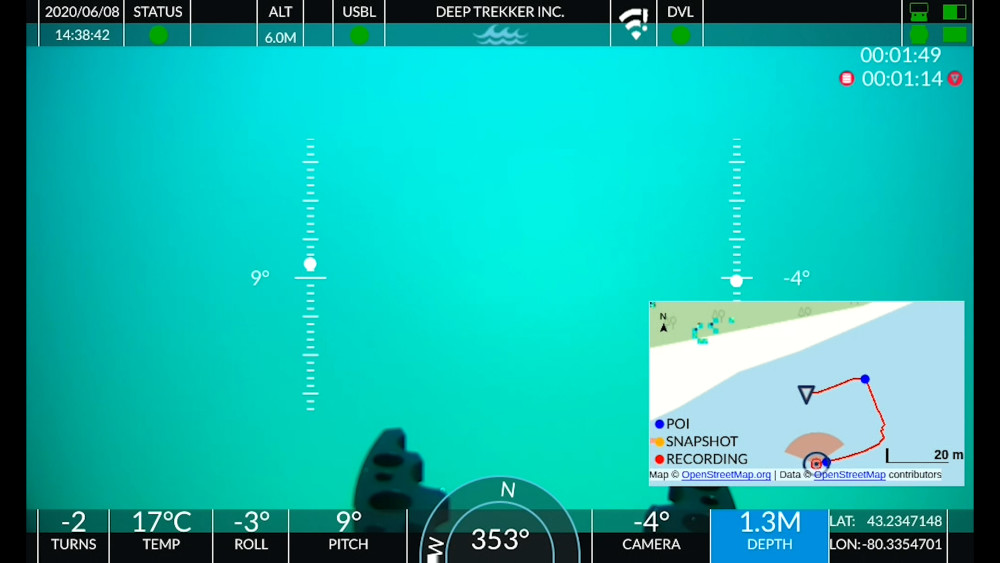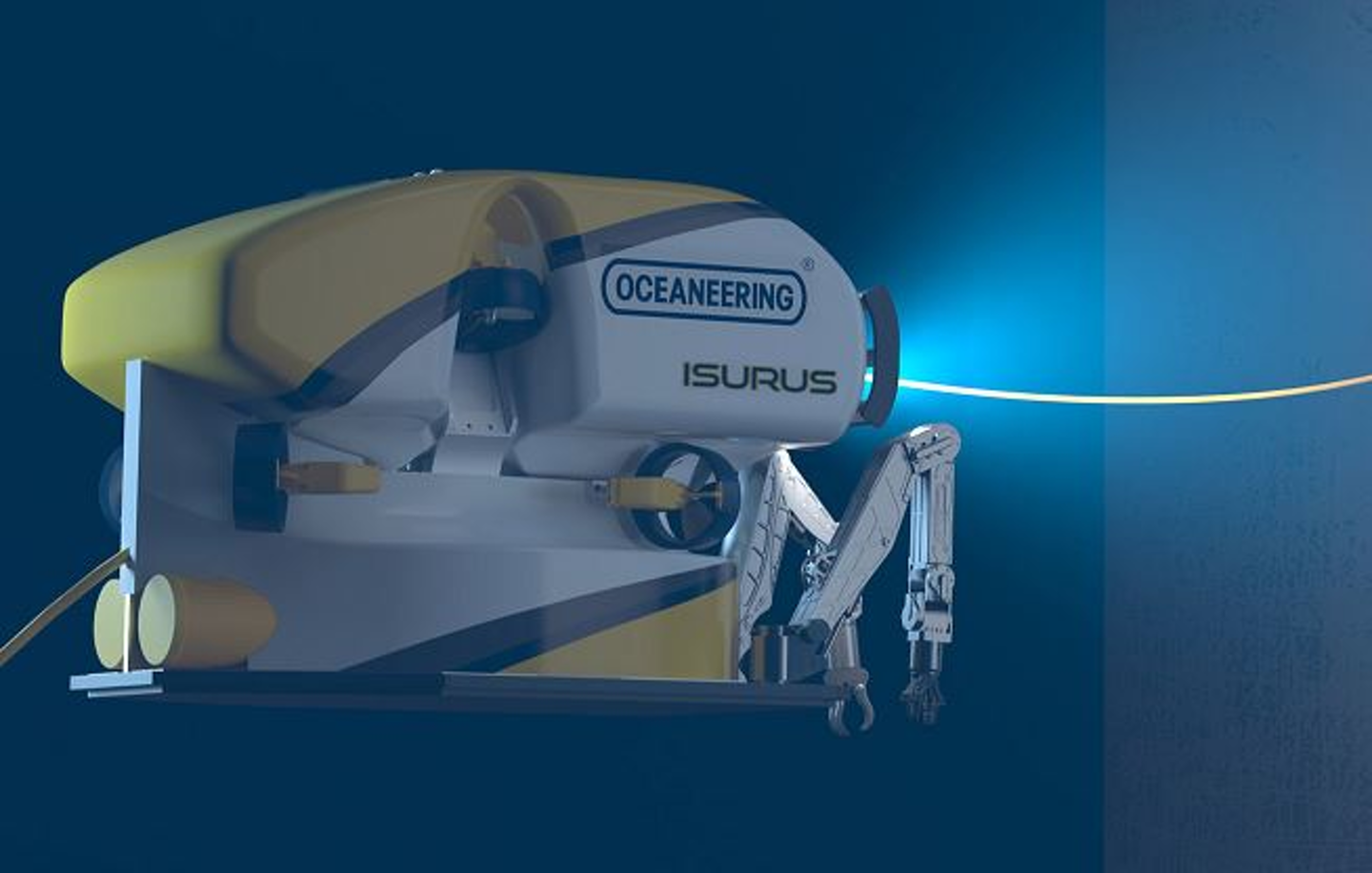Home › Forums › ROV › ROV Employment Discussion › ROV employment advice
- This topic has 4 replies, 4 voices, and was last updated 12 years, 11 months ago by
luckyjim37.
-
AuthorPosts
-
December 5, 2011 at 2:44 pm #4738
Alan Anderson
ParticipantI have recently started working as an ROV Pilot. Completed one 6 week project logging 111 hours.
Previously I was working as a Senior Survey Engineer offshore for 5 years, interfacing to ROV’s and working on various ROV projects. I was so keen to start piloting that I took a 15k wage drop.
The project I was just involved with there had 3 free lancers on at different stages who were all not very good. To give you an idea one of them was about to open the epod with a hammer and chisel. Not good. All were earning substantially more than myself.
My question is this, given my previous offshore experience with ROV’s in survey and electronics in general what level of pay/grade would seem an acceptable level? Also would it be acceptable for me with 111 hours logged to go to an agency like proffs for work?
I don’t really want to be looking elsewhere for work as I have always enjoyed working for my company however their ROV rates at PT4 are quite low.
Thanks in advance for any input.
December 6, 2011 at 9:45 am #31870Sit Rep
ParticipantWell… I know where I would be placing that hammer and chisel! The person with only two thumbs left would be clue.
111 piloting hours, on a six week project do not an ROV Pilot make; although it is a good start. Particularly with regard to free-lancing, you "should" as an ideal candidate be able to demonstrate a wide variety of skills across a wide sector of the ROV industry to improve your appeal to potential employers, therefore it is the 6 week aspect that is relevant.
Did you, in 6 weeks: perform in all potential sea states and visibility conditions, from a large variety of platforms i.e vessel on DP / live-boating, jack-up, semi-sub, barge, operate / maintain several different types of ROV, perform all hydraulic and electrical/electronic fault-finding and repair, mobilise / demobilse the various ROV systems, show a familiarity with all types of ROV tooling, demonstrate dexterity and skill with manipulators?
The obvious answer to the above is largely no. This is not your fault but your goal is to be able to answer yes to the questions above before considering yourself able to be a valuable free-lancer. The "Catch 22" is how to achieve all of this without going free-lance.
In answer to the pay rate question I cannot honestly respond but would refer you to the rates on this website, suffice to say (and I assume that Albatronic is a Scot) that working in the North Sea is pretty undesirable financially!
December 6, 2011 at 10:10 am #31871Andy Shiers
ParticipantSo Keep ya head down learn for five years go through the ranks , come out at the top and go freelance. That way you will be a better pilot and good tech which will help you and ME plus the industry as a whole 🙂
December 6, 2011 at 10:44 am #31872Alan Anderson
ParticipantWell… I know where I would be placing that hammer and chisel! The person with only two thumbs left would be clue.
111 piloting hours, on a six week project do not an ROV Pilot make; although it is a good start. Particularly with regard to free-lancing, you "should" as an ideal candidate be able to demonstrate a wide variety of skills across a wide sector of the ROV industry to improve your appeal to potential employers, therefore it is the 6 week aspect that is relevant.
Did you, in 6 weeks: perform in all potential sea states and visibility conditions, from a large variety of platforms i.e vessel on DP / live-boating, jack-up, semi-sub, barge, operate / maintain several different types of ROV, perform all hydraulic and electrical/electronic fault-finding and repair, mobilise / demobilse the various ROV systems, show a familiarity with all types of ROV tooling, demonstrate dexterity and skill with manipulators?
The obvious answer to the above is largely no. This is not your fault but your goal is to be able to answer yes to the questions above before considering yourself able to be a valuable free-lancer. The "Catch 22" is how to achieve all of this without going free-lance.
In answer to the pay rate question I cannot honestly respond but would refer you to the rates on this website, suffice to say (and I assume that Albatronic is a Scot) that working in the North Sea is pretty undesirable financially!
111 hours I know is not enough, I only considered freelance based on the standard I encountered on that job and have seen on others.
You’ll be surprised how much we actually covered in that 6 weeks, although I know there are far more issues and experience exposure needed to be considered and experienced ROV member. We performed in various sea states and vis, conducted 2 tether reterms, various electronic fault finding, worked on 2 different ROV’s, completed a demob.
As I said on my previous post, I have quite a few years experience fault finding/working with ROV’s.
I guess it is frustrating to see freelancers who have been offshore for 6 months who have self funded at fort William earning a lot more than a guy who has been working offshore and with ROV’s for the last 5 years.
Thanks for the comments. And albatronic he might just be a sweaty sock!!
December 9, 2011 at 9:22 pm #31873luckyjim37
ParticipantThe problem with going free lance from your position is that you probably have only operated one ROV. I would advise a minimum of one seasons ROV operations before considering going Freelance. Also when you are ready fire a C.V. into a couple of agencies and see what they say.
You are dead right in your assessment of some freelancers. They may not be familiar with the vehicle you have been working on. Be a bit careful in comparing wages though. I freelance under the guise of a ltd company. To that end out of my day rate I pay my own taxes and insurances I am also responsible for providing my own PPE(of course there is occassionally opportunities to blag some from companies).
Not to mention if it all goes quiet no work and no pay.
Do not mistake this as a freelancer moaning. I can and do pick and choose the dates I work and have the flexibility to do other things than work offshore which suits me. It may not suit everyone.
You obviously have a higher level of experience and underpinning knowledge compared to someone completely new to the industry but six weeks is not enough to go freelance although it is a good start.
Learn from everyone around you even if the lesson is how not to do something. Keep a good log book and evidence of work and see where you are at in a year.
Report a bad contractor back to your office make sure they do not come back if they are really bad. -
AuthorPosts
- You must be logged in to reply to this topic.



